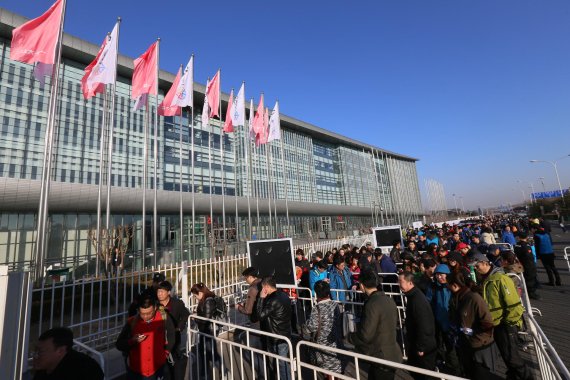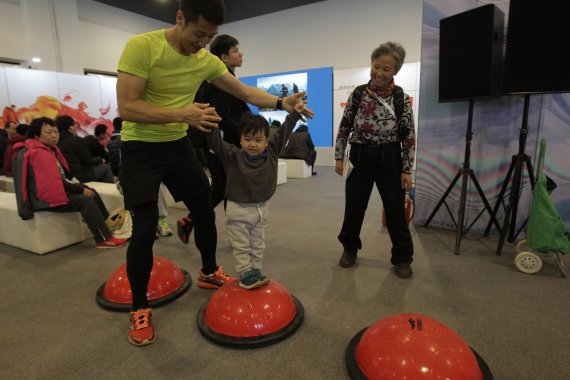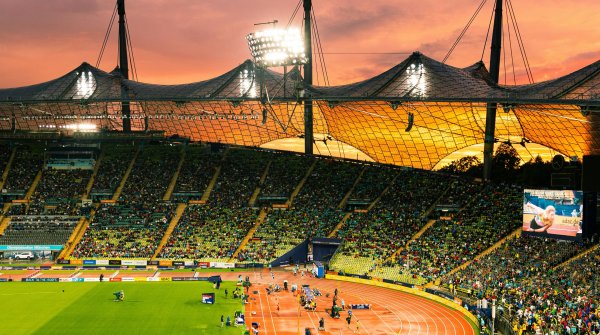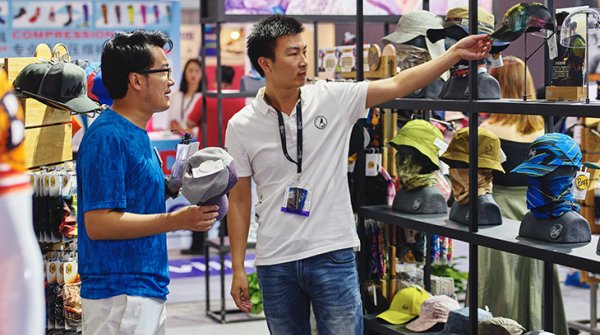
The latest news on the development of China’s economy had not been exactly rosy. Many feared a negative impact on consumption and a lack of optimism in the entire supply chain as a result.
So why did a trade show, primarily geared towards high-end consumer goods, manage to attract so many trade professionals to Beijing?
The Olympic factor
The Olympic factor was frequently mentioned as a major reason for Chinese industry’s optimism about the future. However, it’s important to be realistic about the immediate impact of the Olympic Winter Games in Beijing 2022 on the development of the winter sports industry. It’s safe to say that the Games won’t do any harm, but positive news alone doesn’t usually cause a boom.
After all, there are still six years to go until the opening ceremony of the Games. This factor alone can’t explain the upbeat mood at ISPO BEIJING 2016. Given all the other circumstances, the Olympic spirit alone wouldn’t be enough to keep an entire industry’s optimism afloat.
It’s worth mentioning that the Chinese, in contrast to people from the West, have not lost the ability to be stoical. The Chinese just don’t complain as much, notably when it comes to aspects that are beyond their control anyway. One example is the weather, which is less talked about in China than it is in the West. This even applies to the north of the country, where quite a few regions are actually suffering from a lack of snow. Where local business is concerned, the lack of good conditions for winter sports doesn’t have the same impact on the industry’s mood as it does in the West.
The advantages of the Chinese consumer landscape
It usually takes some time for an economic slowdown to have an impact on the development of specific businesses like the sports products industry.
China very much mirrors the West in this regard. A more pessimistic view of economic development doesn’t necessarily mean that consumers stop purchasing right away. What’s more, it’s not so much a question of how much money is spent but what it is spent on.

In this case, one advantage of Chinese consumer patterns comes into play. In the world of sports, many items are still left for local consumers to try out and to explore. There are still quite a few product categories (including winter sports) that have the potential to gain momentum and to reach consumers who have not tried out the gear concerned.
Information platform for business opportunities, product and market trends
Everybody in the industry is aware that buying and selling in the sports industry might get harder in the years to come. In future, cash registers won’t be ringing automatically. Both vendors and retailers will have to redouble their efforts to become or remain successful.
This development requires players to be on top of the game when it comes to information. The levels of information demanded comprise all aspects and range from product innovations, market trends and business opportunities. ISPO BEIJING has shown it can feed the market with this information. Its organizers managed to provide a large proportion of the important sports activities and related opportunities.
The offering helps the retailer to compare the various categories and their respective potentials. The multi-segment approach that ISPO’s organizers have been pursuing for many years now seems to be paying off for the entire industry. And in a year where the industry is not only expecting good news for the Chinese market.
 Sports BusinessThe future of the bike industry: 6 innovative bike stores
Sports BusinessThe future of the bike industry: 6 innovative bike stores
- ISPO awards
- Mountain sports
- Bike
- Design
- Retail
- Fitness
- Health
- ISPO Job Market
- ISPO Munich
- ISPO Shanghai
- Running
- Brands
- Sustainability
- Olympia
- OutDoor
- Promotion
- Sports Business
- ISPO Textrends
- Triathlon
- Water sports
- Winter sports
- eSports
- SportsTech
- OutDoor by ISPO
- Heroes
- Transformation
- Sport Fashion
- Urban Culture
- Challenges of a CEO
- Trade fairs
- Sports
- Find the Balance
- Product reviews
- Newsletter Exclusive Area
- Magazine




